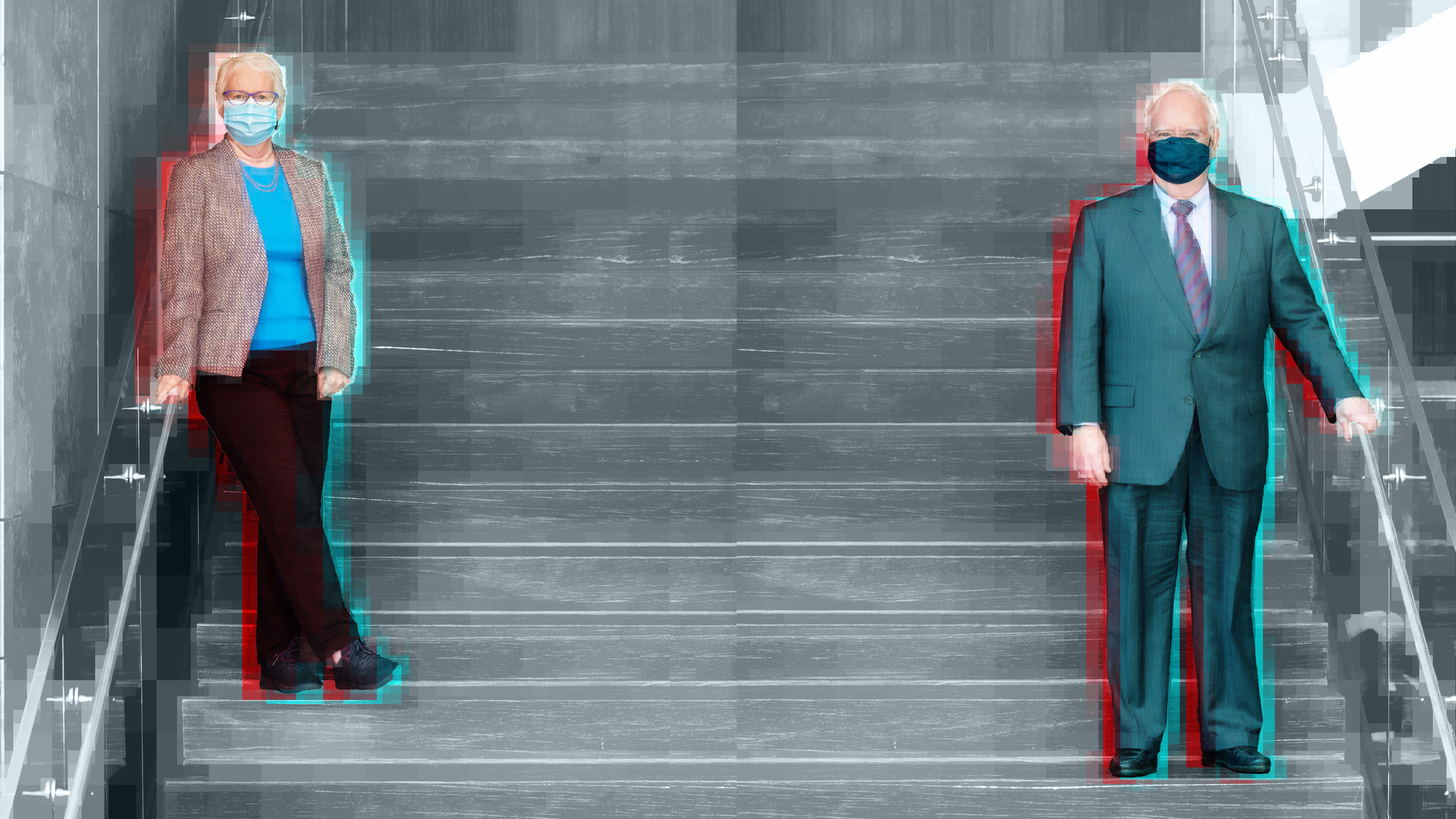

At first, it seemed like college leaders nationwide had two choices when it came to their fall 2020 semester plans: They could tell students to stay home and take their classes remotely. Or reopen campus, set up as safe an environment as possible, and hope for the best.
In this dilemma, BU President Robert A. Brown and Provost and Chief Academic Officer Jean Morrison saw a compromise. Let students choose—remote or in person. Learn from Anywhere, or LfA, became the University’s defining decision for 2020. “We wanted to offer students the flexibility so that our new students can be on campus and engaging in person and so that our returning students can continue to make progress towards their degrees,” Morrison explained.
LfA gave students total control and flexibility of their BU experience: They could stay home and study remotely, or come back to Boston, living on campus or off campus, and take in-person, safe, socially distanced classes mixed with remote classes.
Among undergraduates, 55 percent attended in-person classes versus 45 percent who stayed remote. And among graduate students, 48 percent attended in-person compared to 52 percent who studied remotely.
But students weren’t the only ones impacted by the LfA decision. It meant professors had to return to classes, and there was apprehension, anger, and resentment among many faculty and PhD students, who argued that BU was putting money above the health of its community. “Colleges and universities should not be behaving like used-car salespeople,” CAS associate professor of philosophy Daniel Star wrote in an essay for BU Today. “And students need to be holding institutions to account—not by refusing to be their customers, but rather by insisting that they are not merely customers and hence should not be treated as such.”
Saida Grundy, a CAS assistant professor of sociology and African American studies, said she was surprised how students warmed up to her as she got more comfortable on Zoom. “If your personality can come through the technology, it works well. I never expected that.”